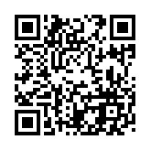期刊目錄列表 - 67卷(2022) - 【師大學報】67(2)九月刊(本期專題:展示亞洲:從博覽會探索國族形象和認同)
 Directory
Directory
從越名任心到通物盡言──當代視域下重探嵇康〈釋私論〉的意義轉向
作者:吳冠宏(國立東華大學中國語文學系教授)
卷期:67卷第2期
日期:2022年9月
頁碼:97-122
DOI:https://doi.org/10.6210/JNTNU.202209_67(2).0004
摘要:
嵇康的〈釋私論〉載有「越名教而任自然」這一句名言,於魏晉「名教與自然」之「正—反—合」的發展論述中,每每被視為「反」的階段,並成為魏晉任誕言行士風的重要理據,在標榜自由與追求個體之近代思潮的推波助瀾下,這樣的判讀已成為學界的共識與定論。
然這個影響深遠的標籤,實則限縮了該論的關懷旨趣與思想格局。有鑑於此,筆者考慮從主體境界與客觀世界的關係重構入手,將關鍵詞從以「越名任心」為重心,轉向「通物」與「盡言」,前者旨在建構自他相須的倫理學進程,力圖跳脫唯我任獨而能有物我共榮、群己相濟的實踐進程,並可視為後續嵇論及魏晉文化在倫理與美學之關係的中介;後者盼能從公之言說客觀論域的重視,使以往側重在主體修養境界的層面,不斷地向他者的「生活世界」扎根轉進,以更貼近時代需要的面貌,成為我們共築真誠之美好世界的動源。
經此重探,不唯在回應當代以倫理學重解《莊子》的新趨勢,亦在突顯嵇康於儒家公私概念發展史上的角色,尤期待使該論從遠儒近道的舊詮轉為儒道並濟下的產物,而成為嵇康相須思想在倫理學面向上的落實。
關鍵詞:公私、通物、嵇康、盡言、關係
 《詳全文》
《詳全文》

參考文獻:
- 魏‧嵇康,戴明揚校注,《嵇康集校注》,北京市:中華書局,2014。
- 魏‧劉卲,《人物志》,臺北市:金楓出版社,1986。
- 晉‧陳壽,《三國志》,臺北市:洪氏出版社,1974。
- 南朝宋‧劉義慶,余嘉錫箋疏,《世說新語箋疏》,臺北市:華正書局,1989。
- 明‧張溥,殷孟倫注,《漢魏六朝百三家集題辭注》,北京市:中華書局,2007。
» 展開更多
- 魏‧嵇康,戴明揚校注,《嵇康集校注》,北京市:中華書局,2014。
- 魏‧劉卲,《人物志》,臺北市:金楓出版社,1986。
- 晉‧陳壽,《三國志》,臺北市:洪氏出版社,1974。
- 南朝宋‧劉義慶,余嘉錫箋疏,《世說新語箋疏》,臺北市:華正書局,1989。
- 明‧張溥,殷孟倫注,《漢魏六朝百三家集題辭注》,北京市:中華書局,2007。
- 中嶋隆藏,《六朝思想の研究—士大夫と仏教思想》,京都府:平樂寺書店,1992。
- 米什拉(Pankaj Mishra),《憤怒年代:共感怨憤、共染暴力的人類歷史新紀元》,葉佳怡譯,新北市:聯經出版公司,2019。
- 牟宗三,《才性與玄理》,臺北市:學生書局,1989。
- 牟宗三,《中國哲學十九講:中國哲學之簡述及其所涵蘊之問題》,臺北市:學生書局,1986。
- 伍曉明,《吾道一以貫之:重讀孔子》,北京市:北京大學出版社,2003。
- 狄百瑞(Wm. Theodore De Bary),《亞洲價值與人權—從儒學社群主義立論》,陳立勝譯,臺北市:正中書局,2003。
- 李雨鍾,《審美與倫理之間的「自然」—朝向「和域」的嵇康思想》,新北市:花木蘭文化事業有限公司,2017。
- 吳冠宏,《走向嵇康—從情之有無到氣通內外》,臺北市:臺灣大學出版中心,2015。https://doi.org/10.6327/NTUPRS-9789863500841。
- 吳冠宏,《聖賢典型的儒道義蘊試詮—以舜、甯武子、顏淵與黃憲為釋例》,臺北市:里仁書局,2000。
- 吳冠宏,《魏晉玄義與聲論新探》,臺北市:里仁書局,2006。
- 余敦康,《魏晉玄學史》,北京市:北京大學出版社,2004。
- 岑溢成,〈嵇康的思維方式與魏晉玄學〉,《鵝湖學誌》,9期(1992),頁27-54。https://doi.org/10.29653/LS.199212.0002。
- 周大興,《自然‧名教‧因果:東晉玄學論集》,臺北市:中央研究院中國文哲研究所,2004。
- 林安梧,《中國宗教與意義治療》,臺北市:明文書局,1996。
- 林安梧,《契約、自由與歷史性思惟》,臺北市:幼獅文化事業股份有限公司,1996。
- 林安梧,《當儒家走進民主社會:林安梧論公民儒學》,臺北市:商周出版公司,2021。
- 林明照,〈王船山莊學中「相天」說的倫理意義〉,《國立臺灣大學哲學論評》,49期(2015),頁77-106。https://doi.org/10.6276/NTUPR.2015.03.(49).03。
- 林明照,〈《莊子》「兩行」的思維模式及倫理意涵〉,《文與哲》,28期(2016),頁269-292。
- 林朝成,〈魏晉士人的公私之辨與生命情境的抉擇〉,論文發表於第一屆臺南市哲學學會學術研討會:再思生命哲學與文學,2007年12月。
- 林琬清,《嵇康倫理思維研究》,碩士論文,臺灣大學哲學研究所,2017。https://doi.org/10.6342/NTU201703323。
- 侯外廬、趙紀彬、杜國庠、邱漢生,《中國思想通史》,卷3,北京市:人民出版社,1957。
- 韋政通,《中國思想史(上冊)》,臺北市:水牛出版社,1999。
- 施穗鈺,《公與私—魏晉士群的角色定位與自我追尋》,博士論文,成功大學中國文學研究所,2008。
- 袁保新,《老子哲學之詮釋與重建》,臺北市:文津出版社,1997。
- 格根(Kenneth J. Gergen),《關係的存有:超越自我‧超越社群》,宋文里譯,臺北市:心靈工坊,2016。
- 許抗生等,《魏晉玄學史》,西安市:陝西師範大學出版社,1989。
- 莊萬壽,《嵇康研究及年譜》,臺北市:學生書局,1990。
- 張蓓蓓,〈「名教」探義〉,載於《中古學術論略》,頁1-48,臺北市:大安出版社,1991。
- 湯用彤,《魏晉玄學論稿》,收入《魏晉思想‧甲編五種》,頁1-138,臺北市:里仁書局,1984。
- 黃克武、張哲嘉(主編),《公與私:近代中國個體與群體之重建》,臺北市:中央研究院近代史研究所,2000。
- 黃俊傑,〈東亞近世儒者對公私領域分際的思考:從孟子與桃應的對話出發〉,載於《公私領域新探:東亞與西方觀點之比較》,黃俊傑(主編),頁85-98,上海市:華東師範大學出版社,2008。
- 童強,《嵇康評傳》,南京市:南京大學出版社,2006。
- 溝口雄三,《中國的公與私‧公私》,鄭靜譯,北京市:生活‧讀書‧新知三聯書店,2011。
- 塔雷伯(Nassim Nicholas Taleb),《反脆弱》,羅耀宗譯,臺北市:大塊文化公司,2013。
- 楊儒賓,《儒門內的莊子》,臺北市:聯經出版公司,2016。
- 福永光司,〈嵇康における自我の問題─嵇康の生活と思想〉,《東方学報》,32冊(1962),頁1-68。
- 蔡振豐,〈魏晉玄學中的「自然」義〉,載於《自然概念史論》,頁59-98,臺北市:臺灣大學出版中心,2014。
- 賴俊雄,〈光影之間:列維納斯的美學與其問題〉,載於《列維納斯與文學》,賴俊雄(主編),頁1-35,臺北市:書林出版社,2010。
- 賴錫三,《莊子靈光的當代詮釋》,新竹市:清華大學出版社,2008。
- 賴錫三,《當代新道家:多音複調與視域融合》,臺北市:臺灣大學出版中心,2011。https://doi.org/10.6327/NTUPRS-9789860288247。
- 賴錫三,《道家的倫理關懷與養生哲學》,臺北市:五南出版社,2021。
Journal directory listing - Volume 67 (2022) - Journal of NTNU【67(2)】September (Special Issue: Exhibit Asia: Exploring National Image and Identity through Exhibition)
 Directory
Directory
From “Surmounting Scholasticism by Following Nature” to “Making Self-Other Connections”: A Contemporary Study of Ji Kang’s Shishilun
Author: Kuan-hung Wu (Department of Chinese Language and Literature, National Dong Hwa University, Professor)
Vol.&No.:Vol. 67, No. 2
Date:September 2022
Pages:97-122
DOI:https://doi.org/10.6210/JNTNU.202209_67(2).0004
Abstract:
Ji Kang’s Shishilun features the famous line, “surmounting scholasticism by following nature.” During the development of the dialectics of scholasticism and nature in the Wei-Jin Dynasties, this line was regarded as a key rationale for the deeds of dissipated elites. With the influence of contemporary thought that stresses freedom and the pursuit of individuality, this interpretation of Shishilun has become the consensus of academic circles.
Nevertheless, this far-reaching interpretation limits the conception of Shishilun. In light of this, the relationship between the subjective and objective worlds is reconsidered, shifting the line from “surmounting scholasticism by following nature” to “making self-other connections (tongwu)” and “being fully engaged in debates (jinyan).” The first shift, “making self-other connections,” constructs the ethics of self-other interdependence and challenges the assumption that mutual prosperity and altruism can be achieved through self-indulgence. Subsequently, the second change, “being fully engaged in debates,” can be regarded as the balance between ethics and aesthetics in Ji Kang’s theory and in Wei-Jin culture. Moreover, the second shift focuses on the objective domain of public opinion, shifting away from the realm of self-cultivation and toward constant reflection on the “life world of the other.” Therefore, we may become closer to the needs of the present and co-create a harmonious and beautiful world.
This re-examination not only responds to the contemporary trend of reinterpreting the ethics of Zhuangzi but also highlights Ji Kang’s role in developing the Confucian concept of public versus private. Additionally, this study departs from previous interpretations that downplay Confucianism and elevate Taoism and proposes an interpretation that stresses both Confucianism and Taoism. As a result, the dialectics of Ji Kang’s thought in ethics can be enriched.
Keywords:public versus private, tongwu, Ji Kang, jinyan, connection